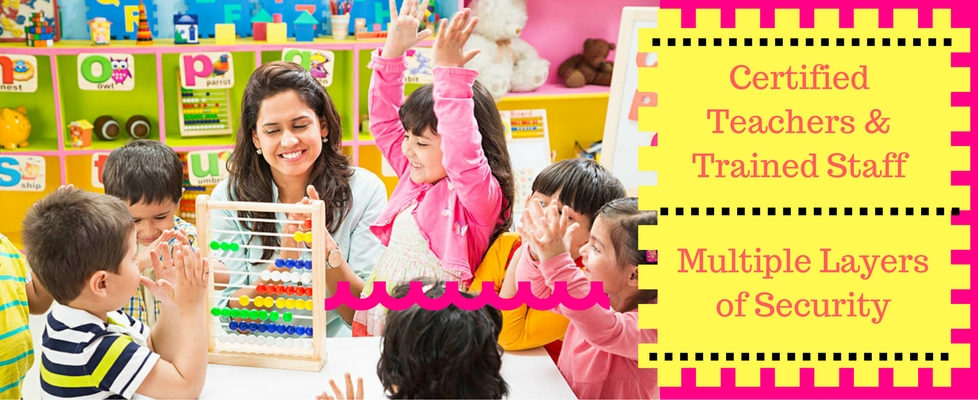HOW TO START
Entrepreneurialism
Preschool owners will tell you that the first few years of operation are the most difficult. Successful preschool owners will tell you that overcoming those difficulties early on spearheaded them to where they are now. Some preschools inevitably fail.
The problem with those that fail is that they themselves fail to recognize the obstacles that prevent them from being a success and if your school is unable to adapt to a given situation, it is unlikely to survive. Many forget that a preschool, like any business, has competitors, is faced with licensing rules, recruitment nightmares, raising capital, keeping finances in check, developing a brand and delivering a quality product and service. Entrepreneurialism is a term many of us believe we possess. However, ideas come cheap and everyone with the exception of a very few is capable of coming up with new and exciting ideas. Being entrepreneurial certainly helps, but the difficult part is being resourceful and putting your ideas into practice.
Once an idea has been formulated, attack it in a thoughtful and targeted way. Some ideas take longer for the public to react, so don’t be put off by a slow reaction. This is the second phase of putting entrepreneurialism into practice, and like the first phase which is coming up with a thought out idea, it is still relatively easy to deliver but failing to deliver it with conviction or sticking to what you believe to be a success is as useless as not putting the idea into practice in the first place.
Listen & Learn
It should be said that not all ideas are capable of delivering success regardless of the level of conviction or the amount of money spent marketing it during the delivery phase. Most businesses that succeed listen to their customers well and by gauging your immediate client base you will soon have feedback on how your idea is being perceived. You should be prepared to accept that your ideas are not always the right ones and when this happens, don’t be afraid to experiment with something new. The worst thing you can do is continue the execution of a badly received idea, waste unnecessary money and possibly negatively impact an otherwise highly regarded reputation.
Curiosity
Many preschools are hesitant to offer something different. Whether it is the type of food they serve, or the curriculum they follow, preschools tend to fall in a predetermined path where distinction is absent and similarities are in abundance. As stated earlier, preschools are businesses and you should let your ideas shape you as something unique enough for parents to identify the differences between your school and others. Dont feel pressured in accepting that because everyone else is doing it, you have to do it too. Some of the most established and leading preschools in the world can all be easily identified for having a unique service, a strong brand and an untouched reputation.
Be the Best
This is actually easier to implement than most businesses because many preschool owners lack the ordinary skills and prowess of the much larger and competitive industries that it could be compared to. For instance, many other businesses have business trained personnel who are well equipped and skilled in running a business. Preschool owners and staff on the other hand are predominantly trained in early learning education and many lack basic training altogether. To be the best evaluate your competitors and compare yourself to the best in your state or country. Although you may not find yourself in competition with the best preschool in the country, it is useful to understand what makes them so highly regarded by parents. Then compare what you believe you can offer to make you a better school to those in your immediate catchment area. You will soon see that there is probably a lot more your school can offer and it may not cost much to implement.
Mission & Ambition
Clarity of Mission Objective
Most educational consultants will tell you the importance of having and staying true to your mission objectives. It’s almost impossible to achieve a desired outcome if the outcome is not clear to you or others in your business. Generally, mission objectives are devised by managerial staff or owners to set the school in the right direction and determine as well as implement a culture that is complementary to creating a distinguished product and having a set of goals that all staff and parents are clearly aware of. The same is true for business objectives. Think of a set of goals that you want your preschool to achieve financially, in terms of branding, reputation, staff recruitment and retention, facilities etc. Alternatively, find a few objectives than encompass some or all factors mentioned above and make these known to your staff.
Ambition
Aiming high is a gift that many of us have, but few either fail to meet this with hard work or end up being overcome with insecurity and doubt. When starting a preschool, it is more important than most businesses to aim big since licensing requirements in most jurisdictions determine how many students you can enroll. If you are certain that your first year will attract enrollments of 45, be sure to find facilities that will be sufficient for 100. It is easier to grow into larger premises than be forced to find an alternative once small premises no longer meet requirements. Aiming big is not always advisable, but if it can be met with hard work, determination and a good product and service you will find yourself growing at a faster rate than smaller businesses that grow organically.
Using other people’s money
Many preschool owners borrow funds through debt or equity routes. Borrowing money from family, the bank or investors will probably be as hard as everything else in the business including marketing a saleable product. Once your preschool has cash in the bank be careful how you invest it. Always think of the money as being yours. You are after all responsible for any losses and in most cases will have to find a way of paying it back if your business fails. The key to making good investments with the money you have available is to meticulously question every decision that involves financial input. Weigh up your options if you have more options available and make sure you pick the most cost effective. Shop around for resources and equipment and try and spread out your spending as much as possible in order to give yourself more time to increase income and limit losses. Where necessary recognize a non cost effective choice and cut your losses as soon as possible to avoid turning a short term loss making decision into an ongoing one.
Brand Development
For some corporations, building a brand is a multi-million dollar exercise and even then some end up in failure. Schools are very different when it comes to branding, primarily due to the fact that it involves two important aspects of our community: children and education. For this reason, brand development for a school requires a solid foundation and care needs to be taken to ensure that your brand is not misinterpreted or based on half-truths. You owe your community a responsibility in being truthful and accurate in your advertising.
Perhaps the most effective method of setting up your brand at a low cost is by conveying yourself or your teachers as the face of the school. People are much more interested in people than they are in other aspects of your business. Whether it’s your qualifications and experience or your ideas in taking the business forward, news outlets and the community are more interested in what you have to say than what an advert in the local paper communicates. Nonetheless, an effective logo and brand image are also important and should be distinctive enough for people to recognize and remember.
Recruitment
Due to the nature of children and the inherent overprotection and concern that parents and the community have for them, crises in preschools should be expected. Often parents are incapable of being rational with their actions and many allow emotions to overcome logic, leading to crises. Schools that deal with crises well are the schools that communicate with parents enough, but don’t let parents feel empowered to command to teachers or owners how the school should be operated. Some crises are unavoidable and rarely a situation arises where immediate action such as the termination of employment is required or legal action is necessary. Identify a developing problem and tackle it head on. Often dealing with what is a small problem preempts disproportionate crises from occurring. The key to understanding crisis management in a school is to be as reasonable as possible. Often schools will conduct staff or managerial meetings to vote on action regarding a crisis or to assist in clarifying a misconception to parents. Preschool owners will want avoid making an executive decision in times of a crisis as this is often interpreted as being irrational or overly autonomous. Instead form a committee of teachers and maybe even a parent representative and make a joint decision. This way parents will be appreciative of the fact that more than one person is leading the school out of crises and there is evidence of greater cohesion and a shared common objective.
Crisis Management
Due to the nature of children and the inherent overprotection and concern that parents and the community have for them, crises in preschools should be expected. Often parents are incapable of being rational with their actions and many allow emotions to overcome logic, leading to crises. Schools that deal with crises well are the schools that communicate with parents enough, but don’t let parents feel empowered to command to teachers or owners how the school should be operated. Some crises are unavoidable and rarely a situation arises where immediate action such as the termination of employment is required or legal action is necessary. Identify a developing problem and tackle it head on. Often dealing with what is a small problem preempts a disproportionate crises from occurring. The key to understanding crisis management in a school is to be as reasonable as possible. Often schools will conduct staff or managerial meetings to vote on action regarding a crisis or to assist in clarifying a misconception to parents. Preschool owners will want avoid making an executive decision in times of a crisis as this is often interpreted as being irrational or overly autonomous. Instead form a committee of teachers and maybe even a parent representative and make a joint decision. This way parents will be appreciative of the fact that more than one person is leading the school out of crises and there is evidence of greater cohesion and a shared common objective.

.jpg)


